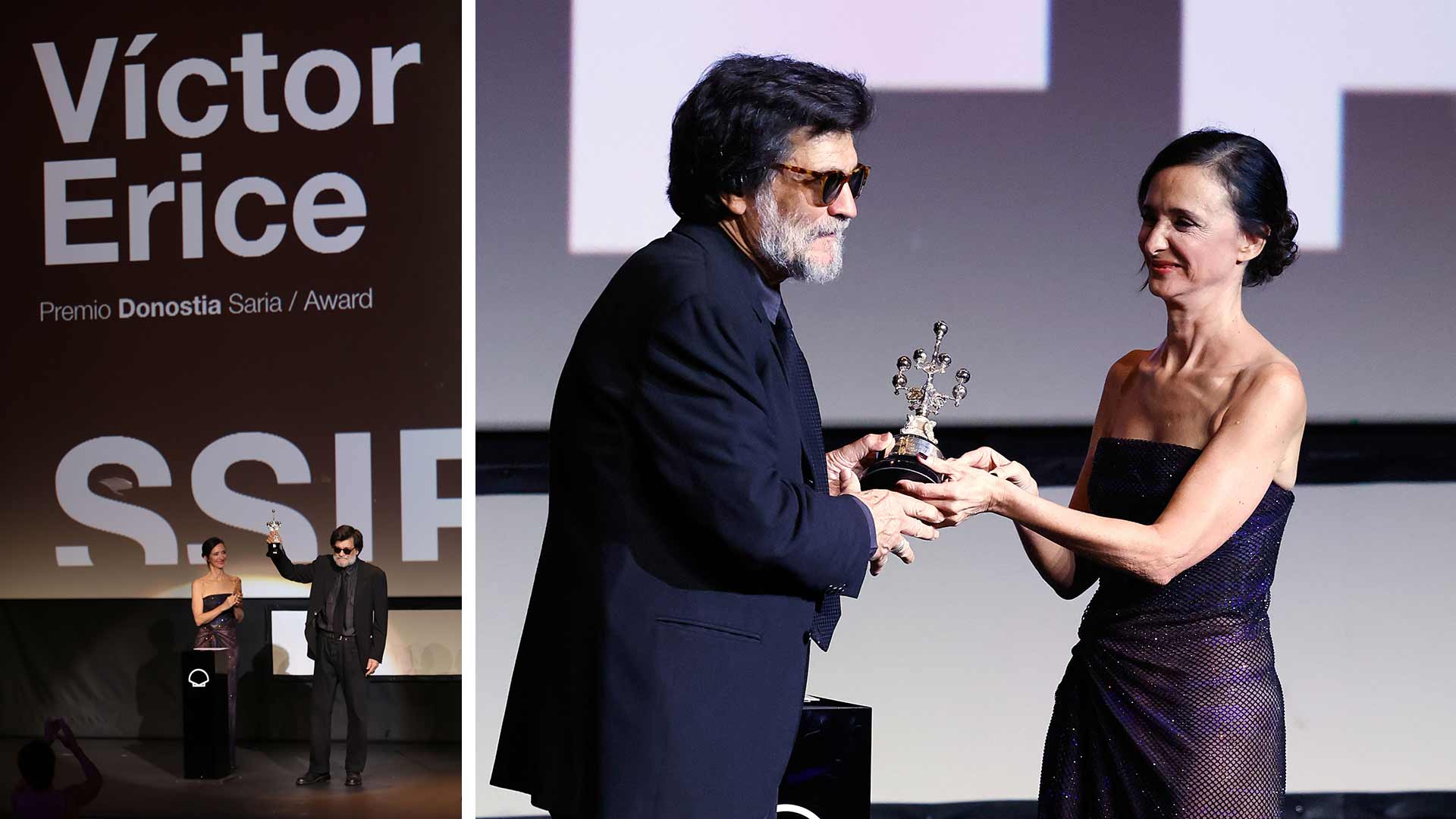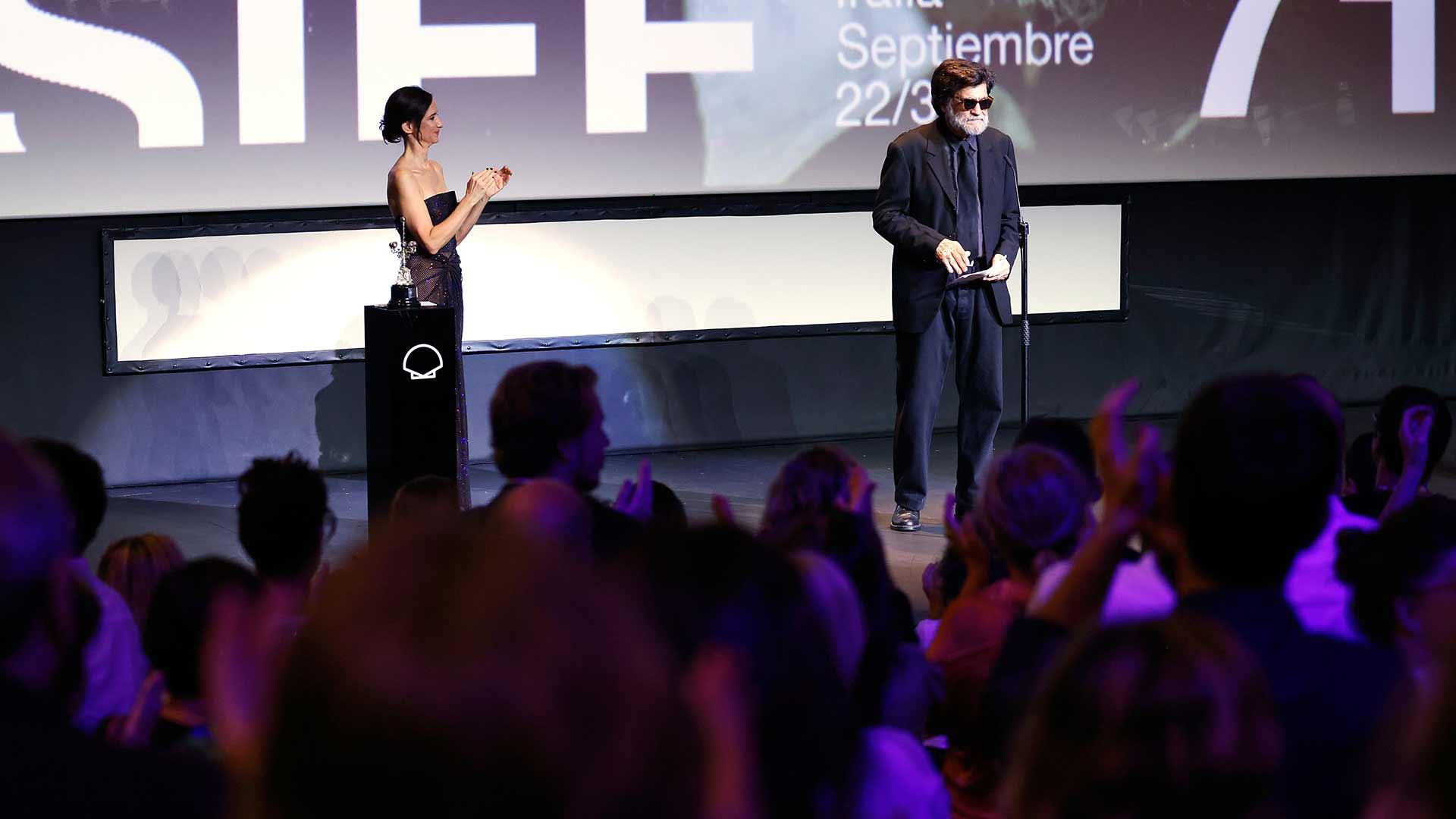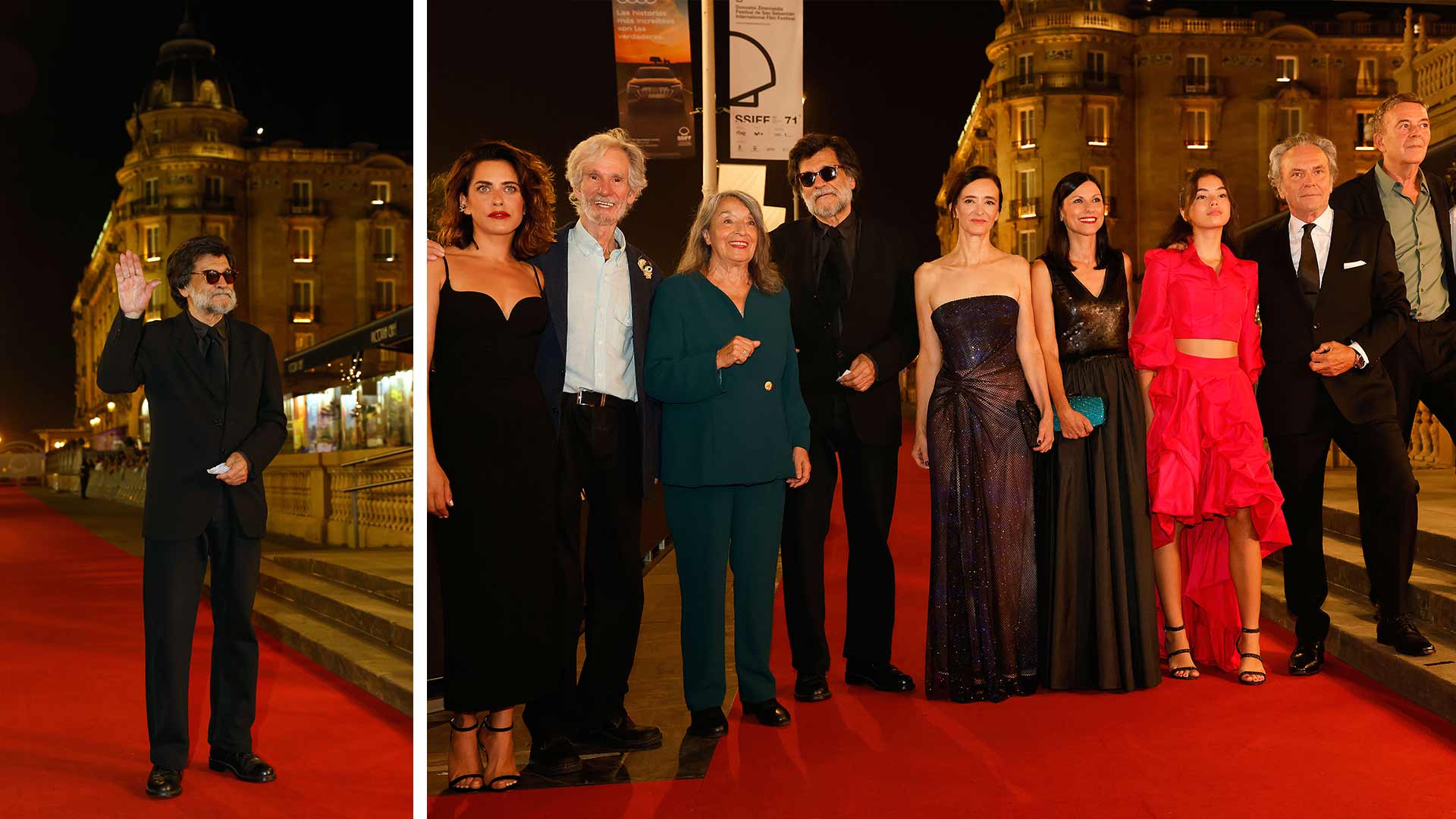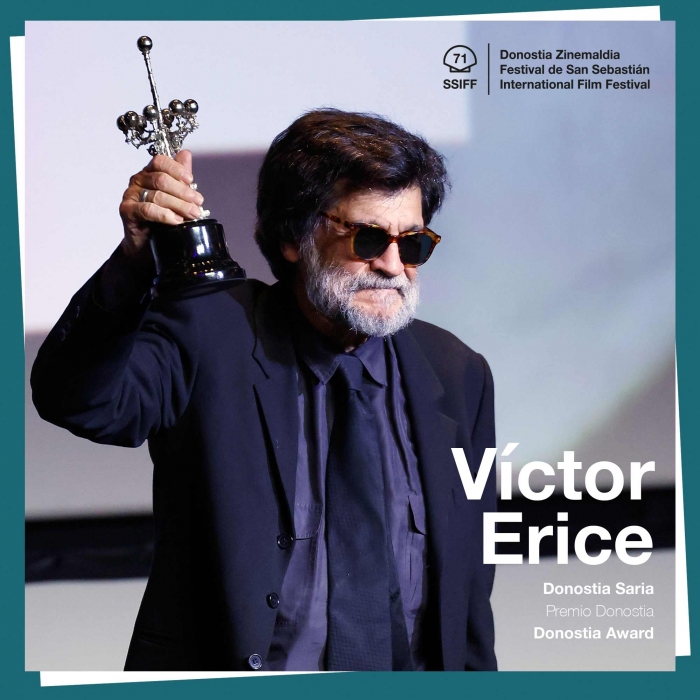Today the filmmaker Víctor Erice (Karrantza, Spain. 1940) received his Donostia Award in the Victoria Eugenia Theatre, 50 years after receiving the Golden Shell on the same stage for his first solo feature, El espíritu de la colmena / The Spirit of Beehive. The actress Ana Torrent, who starred in that film at the age of 6 years, presented the moviemaker with the statuette and joined him in introducing the Donostia Award Screening of Cerrar los ojos / Close Your Eyes, Erice’s fourth feature as a director.
After a prolonged applause, Erice voiced his gratitude for an award bearing the name of the city he came to when he was only months old. The director recalled how he grew up in the city “in all senses, and as a movie spectator”, evoking the first titles he enjoyed in the Kursaal and the Victoria Eugenia: “If I close my eyes right now, I can see myself as a child sitting here in these seats, enjoying films I will never forget”. He also had words for the peers of his generation, his parents and his relatives, and for the San Sebastian Festival.

“I have always understood the cinema as a form of knowledge. That’s why, for me, learning it never ends. As the years go by I think I have come to understand something, that the work of a filmmaker – now recalling Albert Camus – may be nothing more than that long walk through the dominions of the art of making films in order to recover the extraordinary images watched on a screen to which he opened his heart for the first time”, he said before ending in Basque, with a heartfelt “Eskerrik asko, Donostia Znemaldia. Donostia beti”. (Thank you, San Sebastian Festival, San Sebastian forever).
Ana Torrent said it was “enormously moving” to give Erice the award “50 years after coming together in the same place to present El espíritu de la colmena”. “Because Víctor has interlaced life and the cinema in such a way that there is something almost magical in the way he has closed the circle. A circle he started to draw back then when a little girl discovered the cinema, unable to tell the difference between reality and fiction, and which he now completes in Cerrar los ojos when a director evokes the cinema as the crucial place of experience for the spectator, a place in which to recognise ourselves and to understand who we are”, she added.
In the actress’s opinion, for Erice the cinema has always been “an adventure, something alive and revealing, a space for knowledge where a simple story can discover and capture fundamental aspects of life”. “Víctor has never been fond of talking about his films because he has already given so much, so very much of himself in his images. He has been enormously coherent, generous and courageous in his commitment and he hasn’t left us a single image that he thought wasn’t necessary, that wasn’t beating, that wasn’t looking for something. I want to thank Víctor for his loyalty. And, of course, for his point of view, a point of view that guided my own, and gave me the gift of an interpretation of the world that has accompanied me all my life, and that still today continues to give me light. It is an enormous honour to be able to give this award here tonight to Víctor Erice”, she ended.

Víctor Erice’s career has always had its reflection at the San Sebastian Festival. His directorial debut, filming one of the three episodes of Los desafíos (1969) with José Luis Egea and Claudio Guerín, was selected for the Official Selection and received the Silver Shell for Best Director. Four years later, with his first solo feature, El espíritu de la colmena / The Spirit of Beehive (1973), he was acknowledged with the Golden Shell. El sol del membrillo / Dream of Light (1992) was selected for the Made in Spain section, after receiving the Jury and International Film Critics’ Prizes in Cannes, while the anthology film Ten Minutes Older: The Trumpet screened in Zabaltegi in 2002.
After the gala, the Victoria Eugenia hosted the screening of Cerrar los ojos / Close Your Eyes, a film about memory woven around an unfinished film and the mysterious disappearance of an actor. The film, which has previously been shown at the Cannes and Toronto festivals, has been released today in cinemas throughout Spain.
Six years ago, the Festival launched a line of Donostia Awards going to moviemakers whose contribution to the art of film is indisputable, such as Agnès Varda (2017), Hirokazu Kore-eda (2018), Costa-Gavras (2019) and David Cronenberg (2022). San Sebastian Festival’s highest honorary accolade pays tribute in 2023 to a filmmaker who, with only four feature films to his name, has garnered the Silver Shell for Best Director, Golden Shell for Best Film and the Jury and International Film Critics Prizes at the Festival de Cannes, among many other distinctions.






